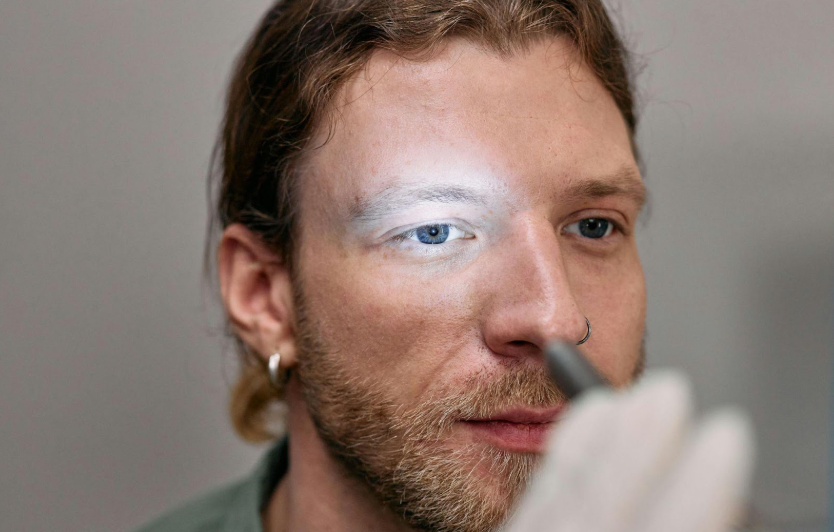What Is Diabetic Retinopathy, And Can It Be Cured
 Diabetes is on the rise in the U.S., and diabetic eye disease is a leading cause of blindness. Over time, high blood sugar levels damage blood vessels throughout the body, including those within the eyes. Diabetic retinopathy is the condition that occurs when the blood vessels in the retina
become damaged from diabetes. If not detected in the early stages, diabetic retinopathy can cause permanent vision loss or even blindness.
Diabetes is on the rise in the U.S., and diabetic eye disease is a leading cause of blindness. Over time, high blood sugar levels damage blood vessels throughout the body, including those within the eyes. Diabetic retinopathy is the condition that occurs when the blood vessels in the retina
become damaged from diabetes. If not detected in the early stages, diabetic retinopathy can cause permanent vision loss or even blindness.
The disease usually affects both eyes and there are two types of diabetic retinopathy—background retinopathy, also known as non-proliferative retinopathy, and proliferative retinopathy. With background diabetic retinopathy, blood vessels in the retina rupture, which puts you at risk of serious risk of vision loss. When the retina begins to lose enough blood, your body will try to grow new blood vessels on the retina to replace the ruptured vessels. This is considered proliferative diabetic eye disease, which is much more likely to result in permanent vision loss.
The National Eye Institute estimates that approximately 40-45% percent of Americans diagnosed with diabetes have some degree of diabetic retinopathy. However, about half of them don’t yet know that they have the disease because their symptoms have not yet become problematic, or because they’ve skipped regular eye exams to screen for the disease.
You can have background and early proliferative diabetic retinopathy without being aware that you do because the disease often has no symptoms in its early stages. As diabetic retinopathy progresses, you may notice symptoms such as:
- Seeing floaters
- Blurry vision
- Seeing dark or blank spots
- Poor night vision
- Colors appear faded
Can It Be Cured?
Because diabetic retinopathy often has no symptoms until vision loss occurs, people with diabetes should get a comprehensive eye exam at least once a year. Unfortunately, once you have lost some or all of your vision, it is difficult to restore it. If caught before vision is damaged, diabetic eye disease can be treated with laser and/or injection therapy.
To reduce the risk of vision loss from diabetic retinopathy, those who have diabetes can follow 5 rules to control the disease:
1> Annual Comprehensive Eye Exams
A comprehensive eye exam, including dilation, allows the ophthalmologist to check the retina for changes in the blood vessels, to check the optic nerve and the lens, and to monitor for swelling of the macula and damage to nerve tissue. Regular examinations allows your eye doctor to begin treatment sooner if signs of disease do appear, which reduces your chance of developing permanent vision loss.
2> Control Blood Sugar
Follow your physician’s recommendations for keeping blood sugar levels stable, since high blood sugar causes both temporary and permanent problems. Your vision may become temporarily blurry during blood sugar surges, and then return to normal after your blood sugar stabilizes. In addition, high blood sugar can permanently damage the blood vessels in your eyes, eventually resulting in vision loss if not detected and treated early.
3> Don’t Smoke
If you smoke , your risk of developing numerous eye diseases—including diabetic retinopathy, macular degeneration, glaucoma, and cataracts—rises significantly. The good news is that after people quit smoking, the risk for these eye diseases is dramatically reduced.
4> Exercise
While everyone knows that exercise is crucial to your overall health, many people don’t realize that this applies to your eyes as well. According to the American Academy of Ophthalmology, studies have shown that regular, moderate exercise reduces the risk of developing eye diseases like diabetic retinopathy. Plus, exercise helps control your diabetes.
5> Control Cholesterol & Blood Pressure
High cholesterol and/or blood pressure levels raise your risk of developing several eye diseases, including diabetic retinopathy. Talk with your doctor about diet and lifestyle recommendations to keep your cholesterol and blood pressure levels under control.
Key Takeaway
Most cases of diabetes-related vision loss can be prevented, but early detection is key . There are often no symptoms in the early stages of diabetic eye disease, but detection and treatment of the disease in these early stages significantly reduces your chance of permanent vision loss.
If you have diabetes, don’t wait for signs of vision loss before going to an ophthalmologist for a comprehensive exam.
Baptist Eye Surgeons is an ophthalmological practice in Knoxville, TN, and Morristown, TN, dedicated to providing quality eye care to patients whose needs range from routine comprehensive eye examinations to treatment for vision loss from diabetic eye disease. To meet our doctors and learn more about our specialities, visit our website or give us a call at 865-579-3920 for more information or to schedule an appointment.


MORRISTOWN
SEVIERVILLE
TENNESSEE VALLEY - LASER CENTER
TENNESSEE VALLEY - EYE CENTER



